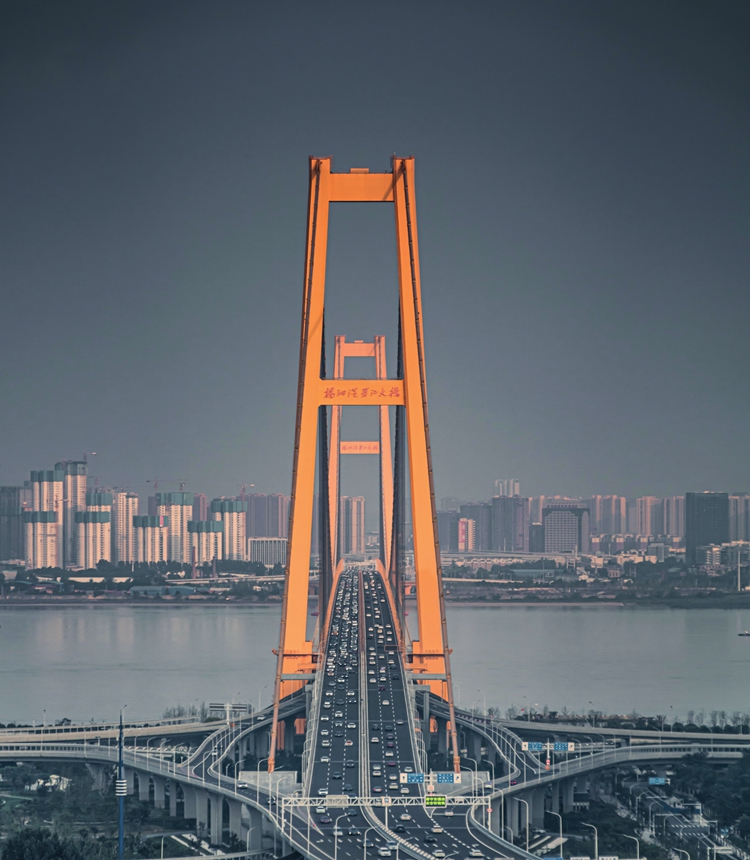On December 8, 2019, Wuhan recorded the earliest COVID-19 symptoms from a patient when the city was still unaware of the looming danger of an epidemic. A year later, Global Times reporters visited the city, which was hit hardest by the virus in China, talking to people from all walks of life, including frontline doctors, volunteers, and recovered COVID-19 patients, to find out how their lives were upended by the pandemic, and how they are moving on. This is the third investigative story the Global Times has conducted as the year draws to a close. The previous ones probed into possibility that Wuhan's outbreak was caused by imported cold-chain products; and China's stricter management of imported frozen products.
A year ago, the central Chinese city of Wuhan was at the start of its typical chilly, rainy winter. No one knew that there was also a looming danger of COVID-19, which would later upend the whole world. The city was thrust into a strict lockdown, but then emerged from the darkness just as spring began. The city that frightened the world after the outbreak of an unknown virus at the beginning of this year created awe when it held an enormous pool party in summer.
As winter's shadow comes again, the world's attention is still fixed on the city, with the tussle about the virus origin still centered on Wuhan. But the city is briskly and firmly moving on from the shadow of COVID-19. The mere mention of the epidemic is enough to induce tears from many Wuhan locals. The mix of emotions has left them trying to banish the scars in their memory, and the lessons taught by the epidemic are too valuable to let go of.
Having overcome what locals called "the biggest plight they've suffered," now Wuhan people continue their lives with cautiousness. Wearing masks and staying at home more are habits that residents in Wuhan have cultivated during the past year. Taxi drivers would disinfect their vehicles twice a day; merchants from wet markets dare not sell imported frozen products after repeated cases triggered by such items; and hospitals and health departments are still on high alert for any possible infection risks.
When the people of Wuhan look back on this extraordinary year, and the changes it wrought, they may remember pain, scars and death, but it is love, courage, solidarity and appreciation for life that carries them forward. Wuhan residents, born beside the Yangtze River, call themselves proud port city people where resilience and bravery run in the blood. Now they want to show the world that while it has struggled, it will take more than the travails of 2020 to make them give up.
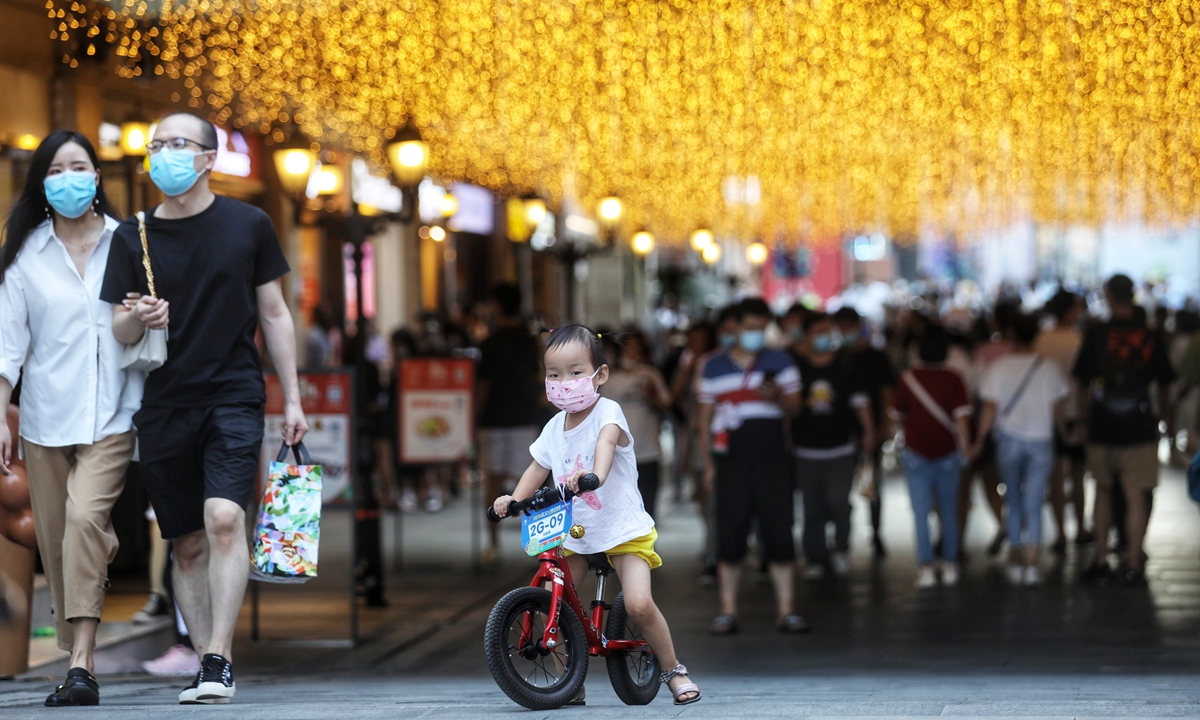
The year of 2020 was a watershed for Lu Jun, a doctor in the emergency department of Tongji Hospital in Wuhan, as despite his work in the ER, he had never himself come so close to death.
On January 5, while attending patients who had swarmed into the hospital in the early days of the New Year, Lu started displaying symptoms of fever and exhaustion. He was diagnosed as being infected with the novel coronavirus, the first infected medical worker to become critically ill.
"We didn't know what the disease was at that time… as a doctor, I only knew I could have contracted a serious infectious disease," Lu said.
Lu's condition was deteriorating quickly. Less than 10 days later, he was unable to breathe unassisted. At the worst point, he felt like he was almost drowning again and again.
That day, he was transferred to Jinyintan Hospital which took many critical patients. "The moment I knew I was being transferred to Jinyintan, my heart was gripped by fear. I couldn't think of anything except trying to hang on and live… the first night in Jinyintan, I stared at the ECG monitor and listened to the beeps 'di,di,di…' all night long, while I suffered from the feelings of being drowned over and over again."
Lu made it through the most dangerous time, and started to improve on January 23, the day the city went into official lockdown. He returned to Tongji Hospital on January 29 and was finally released from hospital on March 28.
Lu went back to work in June and has been trying to fulfill his duties as a doctor as he adjusts to the changes brought by the illness.
"The first day when I came back to work, I found myself exhausted after one hour of work and until now I still cannot have strenuous exercises. But I am recovering better," Lu said.
He noted that the experience of being a patient also freshened his understanding of the responsibility as a doctor. "I felt lucky and thankful to be back and would treat my patients with more understanding and caring."
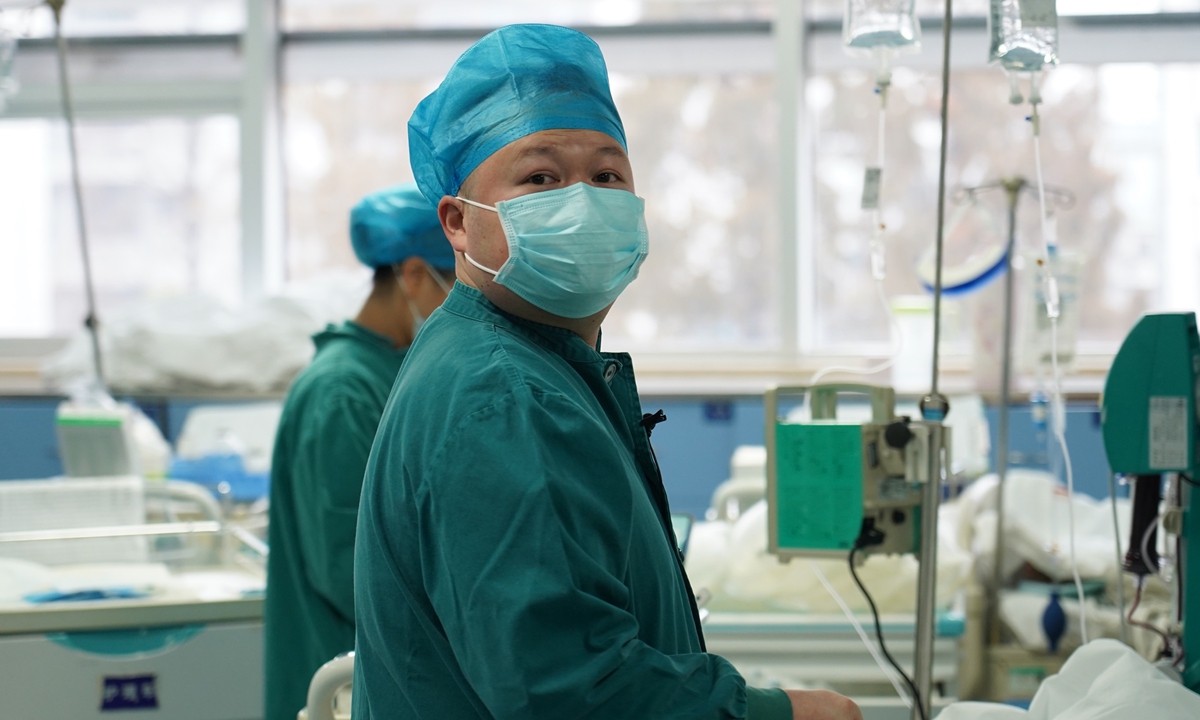
The pain brought by COVID-19 can be healed with time passing by, the wound left on heart can only be treated with love. Lu said that he and his wife never talked about his experience in the hospitals. "What she suffered was not less than me… we chose not to uncover the wound and only to focus on the present… we become closer to each other," Lu said.
He said that when his 3-year-old son grows up, he wants to tell his story and the story of what was happening in Wuhan in 2020. "I want to tell him that his father is a hero."
He is a hero not only because he suffered and recovered from the virus, but also because he has resumed his responsibility as a doctor.
When talking about his New Year wish for 2021, Lu said that he hopes there is no resurgence of the epidemic. He wants people to enjoy a peaceful Spring Festival and be able to get together with families and friends.
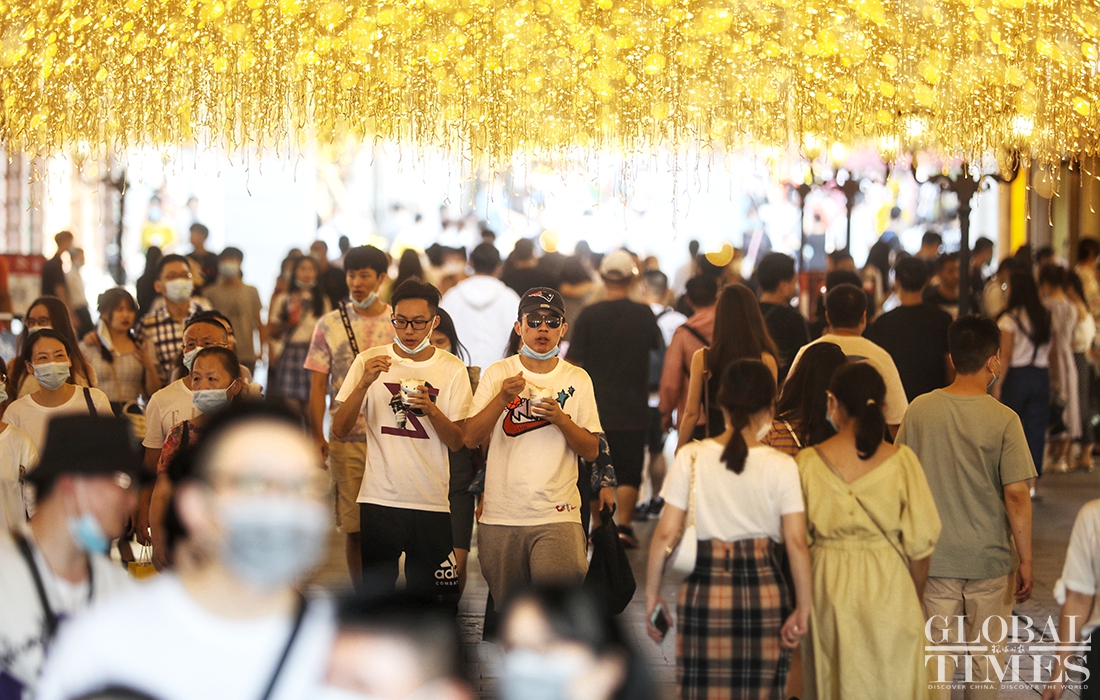
The coronavirus may have distanced Chen Lin (pseudonym) from his father physically for a month, but it brought their hearts which have been estranged for over 20 years closer.
"Feeling grateful," are the first words he thinks of when he looks back at when he brought his father home from the hospital.
Born in a traditional family, the 34-year-old has always wanted to start his own business but in the end obeyed his father and sought a job at a local court. Before the epidemic, he had a very bad relationship with his father who is a gruff retired soldier. A conversation would barely last 10 minutes when they were together.
When his father was diagnosed with COVID-19 in a serious condition and was transferred to the ICU after days of waiting, he began to feel scared: "Would I lose him forever?"
The fear began to overwhelm him as he saw patients at the hospital falling down over the lack of beds. He thought it was a scene you would only see in a movie.
Chen also contracted the coronavirus at that time but he gave up the chance to be admitted to hospital for another elderly man whose condition was worse. Staying in a quarantine hotel, he said he would never forget the first meal he ate there for the rest of life.
"Beef balls, shrimps ... having been self-quarantined at home for over days with only instant noodles to fill my stomach, I finally got a chance to get treatment at a quarantine hotel and I was literally crying when I got the meal," he told the Global Times, shedding tears.
After his father recovered from the disease, the atmosphere between the two taciturn men started to warm up. "My father began to listen to me patiently, understand what I want for my life and support what I've been dreaming of doing," Chen said. "Of course, I also began to understand his worries and his expectations on me with heavy, forbearing love."
Chen admitted that the epidemic also softened his personality, turning himself from an aggressive debater to a gentle listener. However, when it comes to talk about the US and the country's efforts in shifting blame and defaming Wuhan, he goes back to his "aggressive personality."
"During the lockdown, residents in Wuhan united together to combat the virus. Wuhan people never surrender and we will prove to the world that Wuhan will be stronger and better," Chen said.
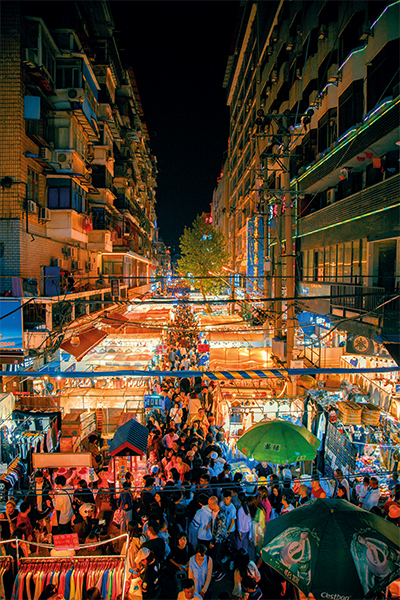
Chen Xingxu said that the normally irritable Wuhan drivers become considerate and would make a way for him after they saw the stickers with "Wuhan volunteer to fight COVID-19" on the back of his car.
As a businessman, Chen used to believe people are all out for themselves. "One would only think about others after they make sure they're OK," he said. Even when he volunteered in early January, he only intended to protect his stubborn wife, who was insisting on working as a volunteer.
It was an image Chen, in his 30s, will never forget when he first saw the medical workers, fully equipped with protective suits and N95 masks bustling about in the Wuhan International Expo Center. "I was handed those protective items, but my legs were shaking. It was like handing a gun to someone who has never been on the battlefield, and asking them to kill."
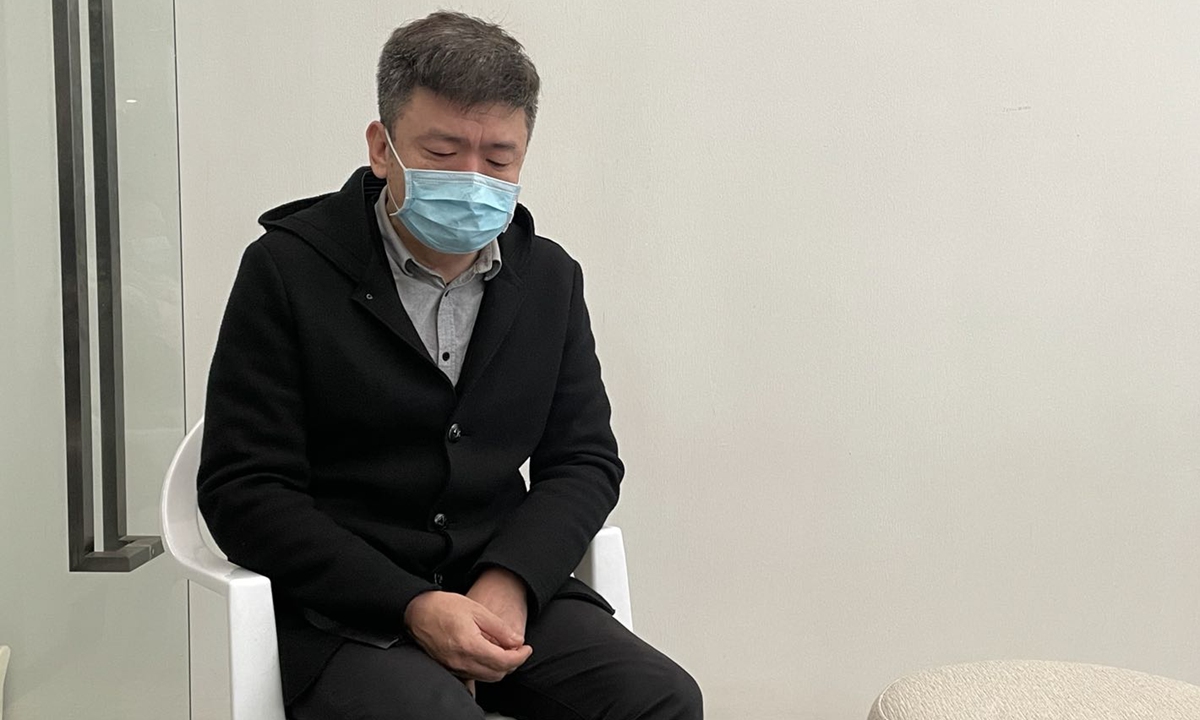
Chen's fear soon turned into tears of emotion within a day, after he saw a 5.11-foot-tall girl moving fast carrying 25 kilograms of disinfectants and when he loaded boxes of masks donated by Pakistan.
"I cried so hard in front of the trucks carrying Pakistan donations. Something was different inside my heart," Chen said.
Motivated by his experience, Chen founded in February a volunteer group focusing on providing help for coronavirus patients in Wuhan. They helped desperate patients get admitted to hospital. As the city was still engulfed by coronavirus darkness, Chen said he received hundreds of phone calls from sobbing patients or their families, many of whom were informing him about deaths of their kins and friends.
One time, he escorted a man, who was seriously sick but could not be treated due to a shortage of medical resources, to the hospital with his wife. "With more and more labored breath, the man could barely rise to his feet, and after five hours of struggle and torment, he fell and died in front of his wife."
"The nightmare of COVID-19 is still tormenting me even now. The pain and the desperation were amplified in my dreams and linger in my memory," said Chen, noting that after having seen so many deaths, it was the bravery and warmth of Wuhan people that propped him up.
Chen said in February, when the city was still facing shortages of food and medical resources, a girl reached him and asked him to send food and masks to volunteers.
"Wuhan was a ghost city at that time. I got home a little late that night, and I saw a tiny figure walking out of the darkness, and gave us what her friends from outside Wuhan sent to her - masks, food and sanitizers. When I asked her 'what are you going to do without those,' she said 'I will just stay at home. You are the ones who need those, you are the ones who are fighting in danger.'"
"It was the second time I cried during the epidemic," said Chen.
"Our generation was brought up with heroic stories of national heroes who sacrificed themselves for the country. I didn't buy into those stories before, they seemed too fanciful to be true."
But after participating in the fight against COVID-19, Chen said that he found that "we Chinese have strong national cohesiveness, which is hidden by the travails of daily life. Once a plight comes in picture, all the hidden emotions, bravery and selflessness will emerge."
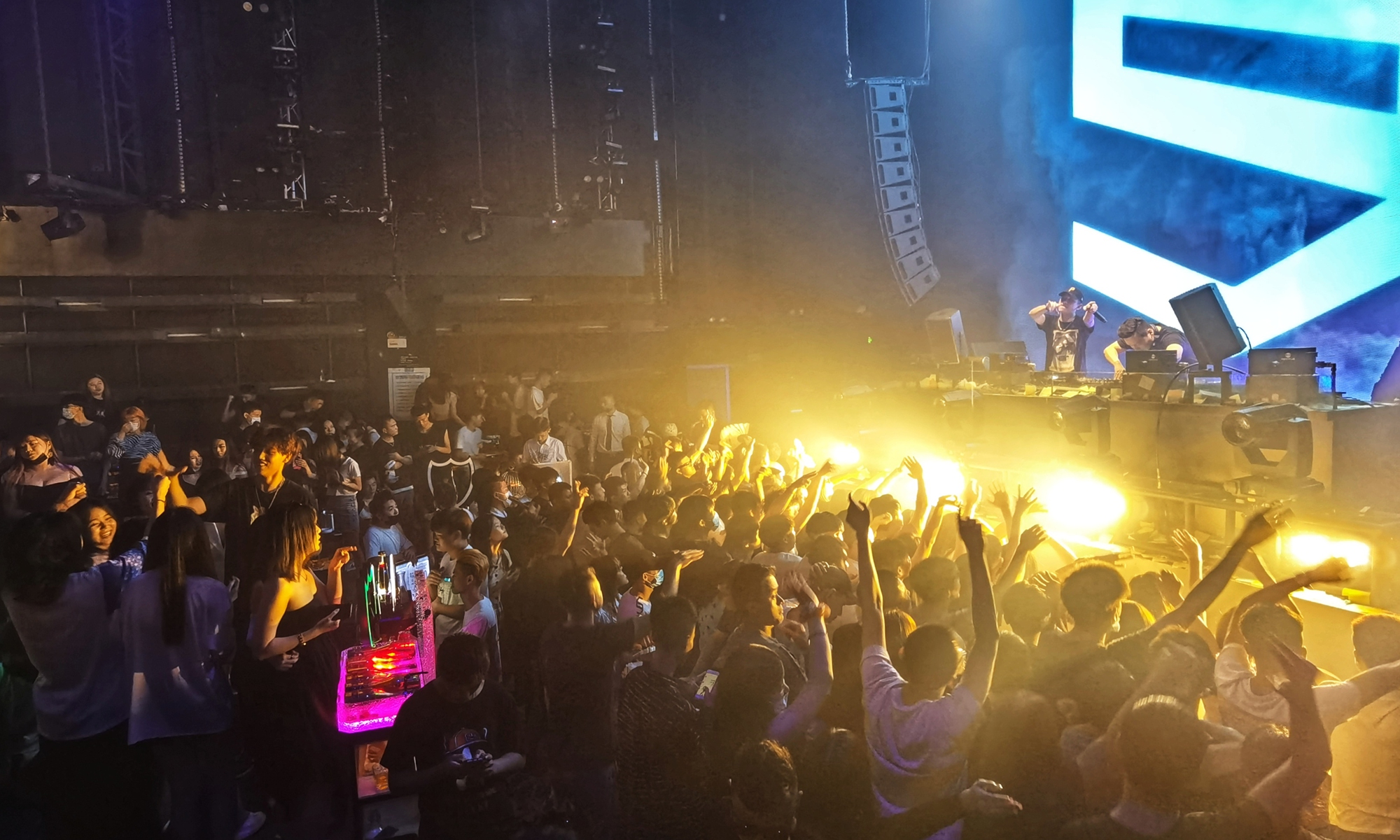
Such patriotism and a strong sense of community has grown in He Aimin, a resident in Wuhan who works at the Wuhan Bus Corp and her husband, Huang Jiayu, who is a civil servant at Wuhan municipal government.
When Wuhan was sealed off, Huang's daily duties included patrolling the community, helping residents who were in indoor quarantine with the deliveries they needed for daily life, buying medicines for seniors and persuading residents who were struggling with the order to stay inside.
He's work in Tonghui residential community was similar to Huang's. The couple left their home around 8 am and returned around 8 pm. Every day, their 12-year-old son would spray them with disinfectant. "That was his happiest moment all day," He said.
"We were also afraid of the virus at that time as it came so suddenly and took lives. But I am a member of the Chinese Communist Party and used to serve in the army, and I knew that it was not the time for me to act like a coward and hang back," Huang said.
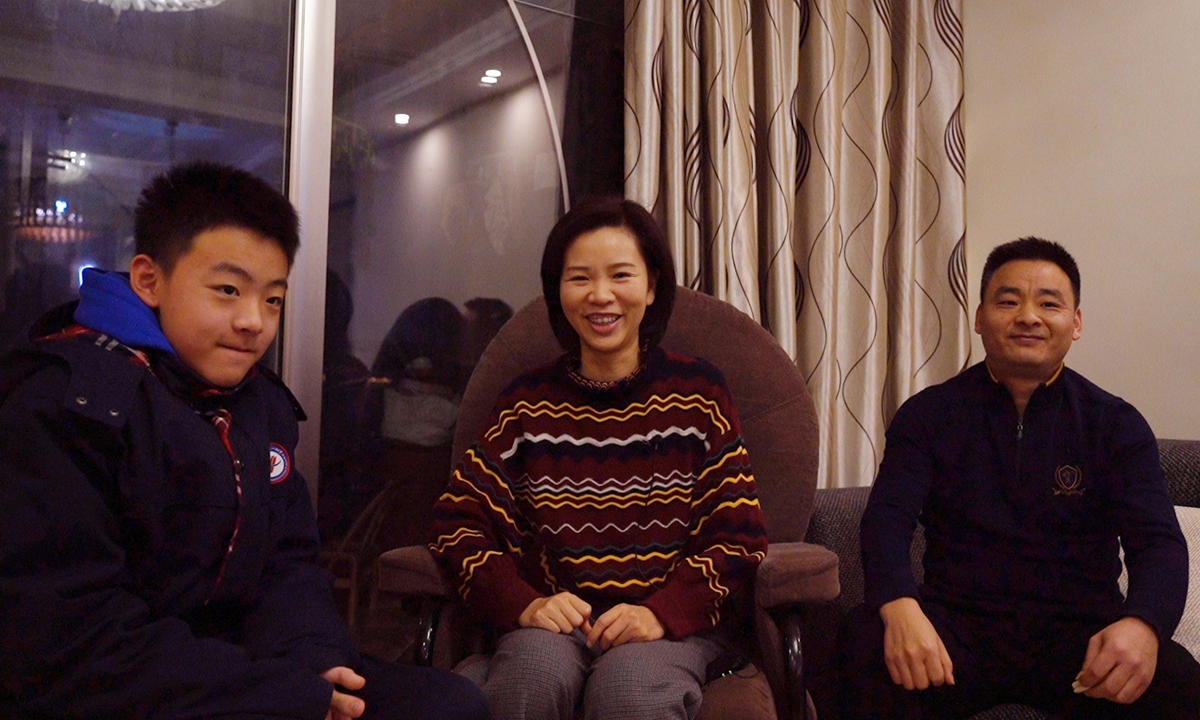
Yet their son hid his fear from them. "I worried they could get infected… I felt lonely at home… It is better to have them at home having a quarrel - at least it sounds lively," their son Huang Junxi said.
The boy said he watched the news on TV every day and heard about the deaths and people getting infected. He listened to his parents' discussions about the difficulties some low-income residents in the residential community where his mom worked had experienced.
So when his mother asked him whether he would help with buying some vegetables for residents in Tonghui residential community, the boy did not hesitate to offer 200 yuan ($30.62).
"I was kind of surprised as he used to be a small 'Eugenie Grandet,' a bit of stingy - he'd hesitate to spend 20 yuan on a gift for me," his mother said with a smile on her face.
"For the first time in my life, I saw the power of unity, which used to be a word that carries little meaning to me. When Wuhan was in lockdown, many medical teams came to aid Wuhan even when they knew there was a chance they may not safely return… It took us a few months to control the virus while the situation overseas is still not good. This is the first time I saw the strength of being unified," the son said.
He said that her family was lucky as they all stayed healthy. "We are very thankful right now, and we feel great happiness to live with our family - to talk to them and to enjoy a walk in the sunshine. We cherish our life more than ever."
On January 27, many Wuhan residents, under lockdown, opened their windows and sang patriotic songs, which remains the shining light in He's dark memory of the lockdown.
"After the lockdown, people in Wuhan were depressed and the pace of life was destroyed. We were living in fear and helplessness and did not know what tomorrow would bring. Then a message went viral on WeChat, calling us to open the window around 8 pm and sing the song 'My People, My Country,'" He said.
"We thought it was a joke at first, but around 8 pm, someone called us to sing. We ran to the window to open it. When the singing started, we burst into tears," she said.
He said that at that moment, she felt the spirit of the people of Wuhan - although they still worried about the disease and were around with news of death and infections, people were united together in hope and for the future.
Almost a year has passed, yet the Wuhan people who talked with Global Times reporters still shed tears at the mere mention of what they had been through. Overcoming what many Wuhan people described the "biggest plight" they ever encountered, people in Wuhan are firmly moving on with a heart filled with gratitude and appreciation for life.
"The resilience of the port city is deeply embedded in our blood. We Wuhan people won't surrender easily, and we will prove to the world that we will be better off and more united," said Chen Lin, the recovered patient.
